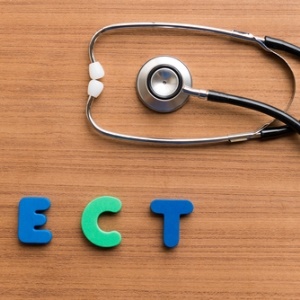
If you have tried a number of treatments for depression without getting the results you need, your doctor may suggest electroconvulsive therapy (ECT), which involves a brief, mild electrical stimulation of the brain that causes a small seizure which helps relieve symptoms of depression. ECT is not painful or dangerous and may be helpful for severe depressive or in some cases, manic episodes.
Today's ECT is nothing like the ECT of a few decades ago, or the ECT that you see in some movies. It may sound frightening, but sometimes it is the best way to manage your depression. Medications may be needed as a follow-up treatment. Some individuals report memory loss as a side effect of ECT, an effect which appears to be more common when the treatments are close together, or when ECT is applied to both sides of the brain, rather than just one side.
The decision to use ECT must be carefully made by a patient and his or her doctor. The severity of a person's illness must be considered, as well as the person's response (or lack of response) to other types of treatment and the person's overall medical condition.
Proper evaluation and procedure
ECT can be helpful when a person is severely depressed and needs a treatment that works quickly or when a person cannot physically tolerate medication or does not respond to it. ECT is not forced on people or used to control them.
Before receiving ECT, a person is given a complete medical examination. Brain activity and heart condition are evaluated. Some medications may be stopped. Before ECT, a person is given anaesthesia and a muscle relaxant by a medical professional. The actual electric current lasts a very short time, the person is given oxygen, and brain and heart activity are monitored throughout the procedure. After the treatment, the person is supervised to make sure there are no complications. There are usually four to 12 ECT sessions in a complete treatment and sessions are given periodically over the course of a few weeks or months.
Many people who have had ECT say they are thankful that the treatment was available to relieve their depression. In her book Undercurrents, Martha Manning, Ph.D. writes about how ECT helped with her recovery from depression. "It was no picnic," she says, "but I'd do it again in a heart-beat … In choosing the hospital and ECT I chose to fight for my life. Today I am living the life I fought for."
- Information supplied by the South African Depression and Anxiety Group 011 2626396.




 Publications
Publications
 Partners
Partners











